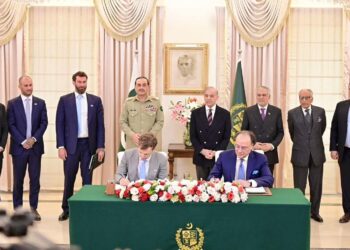Amid the escalating tension between Iran and Israel, several direct contacts have reportedly taken place between the United States and Iran, according to a recent revelation by three diplomats speaking to Reuters. These developments mark a rare moment of communication between the two nations, which have long relied on indirect diplomacy, especially following the U.S. withdrawal from the 2015 Joint Comprehensive Plan of Action (JCPOA) under former President Donald Trump.
The diplomats, who chose to remain anonymous due to the sensitive nature of the discussions, stated that the U.S. Special Envoy for Middle East Affairs, Steve Witkoff, and Iranian Foreign Minister Abbas Araqchi have engaged in several phone conversations in the aftermath of Israeli strikes on Iranian territory.
Background: Growing Regional Instability Following Israeli Attacks
Tensions in the Middle East have reached new heights in recent weeks following a series of Israeli airstrikes on Iranian military targets. These attacks, allegedly aimed at disrupting Iran’s growing influence in the region and its alleged support for armed proxies like Hezbollah and militias in Syria and Iraq, have led to retaliatory threats and escalations from Tehran.
Iran has strongly condemned the Israeli actions, calling them a “violation of sovereignty” and warning of consequences if international actors fail to intervene.
Diplomatic Communications Revealed
According to three well-placed diplomats, Steve Witkoff and Abbas Araqchi have engaged in multiple conversations in recent weeks to explore potential diplomatic off-ramps to the growing crisis.
Direct Contacts Amid Crisis
While direct communication between Iranian and U.S. officials has been rare—often replaced by indirect channels through European intermediaries or regional actors—these recent calls signify a possible shift in approach amid rising fears of a full-scale regional war.
These diplomatic calls, reportedly initiated by the United States, represent the most substantial direct contact between the two governments since the brief informal meetings between Araqchi and Witkoff in Amman and Italy in April. Those meetings, although limited in scope, laid the groundwork for more open dialogue, especially in the wake of renewed hostilities.
Iran’s Position: No Talks Until Israeli Aggression Ends
In these conversations, Iranian Foreign Minister Abbas Araqchi made it explicitly clear that Tehran will not return to any nuclear negotiations until Israel halts its attacks.
“There is no room for talks or compromise while bombs are falling on our territory,” said one diplomat paraphrasing Araqchi’s remarks.
U.S. Proposal on Uranium Enrichment Rejected
The diplomats also revealed that the discussions briefly touched on a U.S. proposal from late May, which suggested the formation of a regional consortium to enrich uranium outside Iran. This plan was presented as a way to ease Western fears about Iran’s nuclear ambitions while still allowing Iran to pursue civilian nuclear energy.
However, Iran swiftly rejected the proposal, reiterating its sovereign right to enrich uranium within its own territory as outlined under the Non-Proliferation Treaty (NPT).
European Diplomacy Also in Motion
Diplomatic activity is not limited to the U.S. and Iran. According to reports, Britain, France, and Germany, all original signatories of the 2015 nuclear deal, have also stepped up their engagement.
On Sunday, these three countries reportedly held ministerial-level discussions with Araqchi. Additionally, a meeting is scheduled to take place in Geneva, where ministers from the EU and E3 (UK, France, and Germany) are expected to hold further talks with the Iranian foreign minister.
The aim of this multilateral engagement is to revive the JCPOA or at least initiate a new framework for reducing nuclear tensions in the region.
U.S. Policy Ambiguity Raises Questions
Despite the ongoing talks between diplomats, the Biden administration has not yet clarified its stance on whether the United States will militarily support Israel in the event of further conflict with Iran. While President Biden has expressed a desire for de-escalation, he has stopped short of ruling out military involvement, leaving room for speculation.
“Iranian officials are still open to engaging with Washington, but only if there’s a concrete shift in U.S. policy toward Israel,” said one regional diplomat.
This strategic ambiguity has left many analysts questioning whether the White House is pursuing peace or preparing for potential escalation, especially given the ongoing lobbying by Israeli Prime Minister Benjamin Netanyahu for stronger U.S. involvement.
The Netanyahu Factor: Is Trump Being Pushed Toward War?
The report also references growing concerns among diplomats and analysts that Israeli Prime Minister Benjamin Netanyahu may be pressuring the U.S. into conflict with Iran. Netanyahu has long maintained that Iran poses an existential threat to Israel, and he has publicly called for international action to dismantle Iran’s nuclear infrastructure.
Some analysts suggest that Washington may be caught in a delicate balancing act—wanting to maintain its alliance with Israel while also avoiding another prolonged conflict in the Middle East.
Diplomatic Hope: Signs of Flexibility from Iran?
Despite the hardline public stance, a regional diplomat close to Tehran told Reuters that Iran might show flexibility on the nuclear issue if the U.S. successfully pressures Israel to cease its military operations.
This sentiment was echoed by a European diplomat, who said:
“Abbas Araqchi told the U.S. envoy that Iran is willing to return to the negotiating table, but only if the aggression from Israel is halted.”
This conditional openness suggests there may still be a narrow window for diplomacy—one that hinges largely on U.S. influence over Israeli decision-making.
The Road Ahead: Potential Outcomes and Risks
As the region teeters on the edge of a broader conflict, several possible scenarios are being discussed in diplomatic circles:
- Renewed Nuclear Talks: If Israel halts its military actions and the U.S. maintains diplomatic engagement, Iran may rejoin negotiations, potentially under a new framework.
- Escalation into Full-Scale War: Continued Israeli aggression could prompt Iran to retaliate more forcefully, drawing in regional proxies and possibly the U.S.
- Third-Party Mediation: Countries like Oman, Qatar, or Switzerland, known for their neutral stance, could be enlisted to mediate between Washington and Tehran.
Conclusion: A Critical Juncture for Middle East Peace and Global Stability
The revelation of direct U.S.-Iran contact marks a significant development in an increasingly volatile geopolitical landscape. While diplomatic engagement offers a glimmer of hope, it remains highly conditional and fraught with challenges.
The coming days and weeks will be crucial in determining whether the United States can steer the region away from the brink of war or whether ongoing hostilities between Israel and Iran will spiral into a larger and more destructive confrontation.
Observers and analysts alike are watching closely, hoping that diplomacy will triumph over destruction.

























